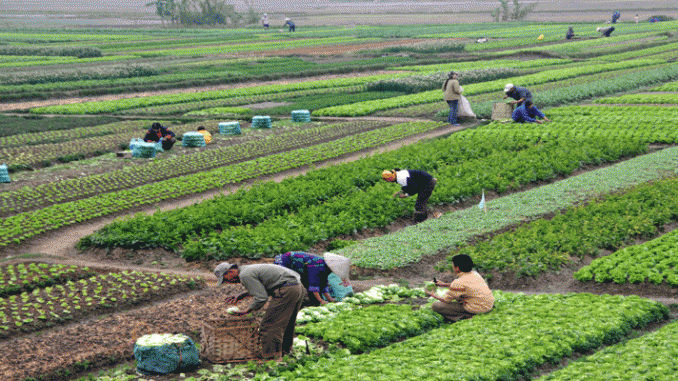
Veteran journalist P.Sainath on Monday, terming “inequality” the fundamental reason for water and farm crisis in the country, said agriculture should be declared a “public service” in India.
Delivering the Delhi Assembly Lecture Series’ inaugural talk on “Water and Farm Crisis in India”, he also called for a special parliament session on it.
“The Swaminathan Commission report is lying in the Parliament for 10 years. There has been no discussion on it. There should be at least a 10-day-long session on water and farm crisis,” Sainath said.
Defining drought as a “mega water crisis” in the country, he contended that looking at the agricultural crisis in the country and the rate of farmers’ suicides, agriculture should be declared a public service by the government.
“The agriculture credit is going to agri-business and not going to the agriculturists. Credit crisis has pushed millions of farmers into debt. Since 1991, there has been a reduction in the population of 150 lakh farmers,” said Sainath.
“Agriculture in our country should be declared public service and farmers should be guaranteed cost of production plus 50 per cent.
He said people think drought is due to meteorological factors, but there is a hydrological factor to it.
“I call drought a ‘mega water crisis’, which is caused due to overuse of ground water. Even if you get three monsoons, there may be relief, but it is not the solution to drought. In the last 20 years, India stands naked in water and farm crisis,” said Sainath.
Talking about his visit to the source of the Krishna river in Satara (Maharashtra) and the source of the Godavari at the Ram Konda Ghat, he said: “For the first time in the history the river sources are drying up because of extensive deforestation and concretisation.”
“At the Ram Konda Ghat, every day 60 to 90 tankers of water are poured into the river for the people to take bath. People take bath in the sacred waters of a tanker,” he quipped.
Giving example of Maharashtra, he said: “No state has spent more money to produce less water than Maharashtra.”
Terming the water crisis as policy-driven, he said: “The interest of ordinary people come last.
“First we should think whether drinking water is a human right or a commodity? Top one per cent of Indians owned 53 per cent of total wealth as of 2015. Nowhere has inequality grown faster in the last 15 years.
“This inequality in the country reflects on water issues, education, health and every other aspect. Basic rights of Indian citizens such as health, water and food need to be guaranteed. The rate of growth of inequality is the highest in the country,” he added.
He also urged people to focus on ‘urban agriculture’.
“Worldwide a trend is emerging of urban agriculture. Rooftop, balcony agriculture, neighbourhood plants can be taken into account seriously. In Europe, it is very common in crowded cities. This is something that we can examine whether it is feasible. Some important supplements of the diet people can grow for their families,” said Sainath.
Source: India Live Today

Leave a Reply